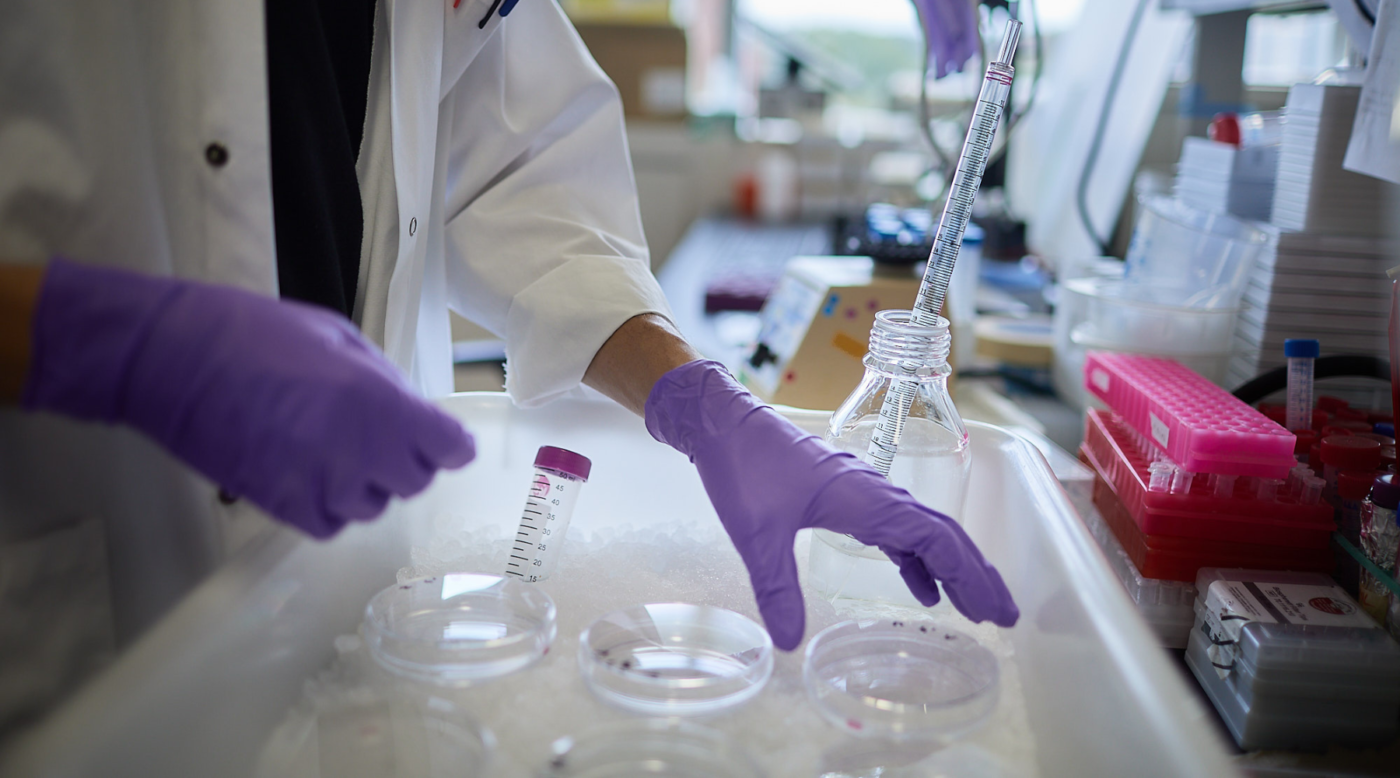News
Thirteen IRIC members are recipients of scholarships and grants from the Fonds de recherche du Québec for the year 2023-2024
Published on May 5, 2023
The Fonds de recherche du Québec (FRQ) offers $58.6 million in training grants, $13.1 million in career grants and $29.8 million in research grants for a total of $101.5 million in new grants for the year 2023-2024. IRIC is proud to count several of its members among the winners of these competitions.
Congratulations to everyone!
Master’s scholarships, Fonds de recherche du Québec – Santé (FRQS)
- Emmanuelle Del Guidice, Gregory Emery’s laboratory: $40,000 scholarship for her project “Coordination of actin contractility by the kinase Misshapen during collective migration in vivo”.
- Ann-Sophie Gironne, laboratories of Geneviève Deblois and Sébastien Lemieux: $40,000 scholarship for her project “Targeting the mechanisms leading to chemoresistance in triple negative breast cancers”.
- Carl Munoz, Sébastien Lemieux’s laboratory: $40,000 scholarship for his project “Reducing the number of “reads” required for the analysis of transcriptomic data through the use of deep learning methods”.
Master’s scholarships, Fonds de recherche du Québec– Nature et technologies (FRQNT)
- Jade Cimmino, Delphine Bouilly’s laboratory: $20,000 scholarship for her project “Characterization of the sensitivity of an electronic biosensor using the CRISPR/Cas13 system to detect point mutations in an RNA virus”.
- Emmanuelle Del Guidice, Gregory Emery’s laboratory: $40,000 scholarship for her project “Coordination of actin contractility by the kinase Misshapen during collective migration in vivo”.
- Carl Munoz, Sébastien Lemieux’s laboratory: $26,667 scholarship for his project “Reducing the number of “reads” required for the analysis of transcriptomic data through the use of deep learning methods”.
Doctoral scholarships, Fonds de recherche du Québec – Santé (FRQS)
- Gabriel Alzial, laboratory of Geneviève Deblois: scholarship of $66,666 for his project “Study of metabolic and epigenetic interactions dependent on alpha-ketoglutarate in chemo-resistant triple-negative breast cancer”.
- Guillaume De Lhoneux, laboratory of Philippe Roux: scholarship of $83,333 for his project “Identification of new vulnerabilities linked to the MYC oncogene in breast cancer”.
- Lucyle Depoërs, Claude Perreault’s laboratory: $50,000 scholarship for her project “The role of Klf4 in the response of thymic epithelial cells to sex hormones”.
- Nitya Khetarpal, Katherine Borden’s laboratory: $100,000 scholarship for her project “Searching for new roles for eIF4E in splicing”.
- Robin Minati, Pierre Thibault’s laboratory: $58,333 scholarship for his project “Expanding the breast cancer-specific antigen repertoire using a proteogenomic approach in five human cell lines”.
- Elamine Zereg, Sylvain Meloche’s laboratory: $91,666 scholarship for his project “Characterization of the role of protein tyrosine kinases of the Src family in the oncogenesis of malignant tumors of the peripheral nerve sheath”.
Doctoral scholarships, Fonds de recherche du Québec – Nature et technologies (FRQNT)
- Guillaume De Lhoneux, laboratory of Philippe Roux: $33,333 scholarship for his project “Identification of new vulnerabilities linked to the MYC oncogene in breast cancer”.
- Guillaume Serwe, laboratory of Marc Therrien: $100,000 scholarship for his project “Study of the function of the CNK3 protein for cell motility”.
Career grant, Fonds de recherche du Québec – Santé (FRQS)
- Vincent Q. Trinh, Director of the Digital Histology and Advanced Pathology Research Unit at IRIC, receives a $123,415 grant for his project “The impact of fibroblasts on the malignant transformation of dysplastic stem cells in pancreatic tumours”.
Research grant, Fonds de recherche du Québec – Nature et technologies (FRQNT)
- David Knapp, Director of the Cellular Engineering Research Unit at IRIC, obtains a research grant of $29,062 for the project “In vitro modeling of leukemic mutations associated with aging and their microenvironmental interactions”.
